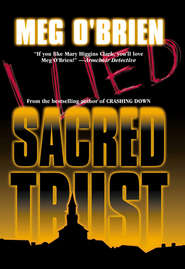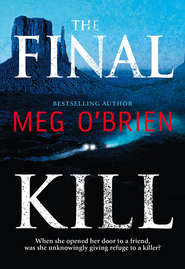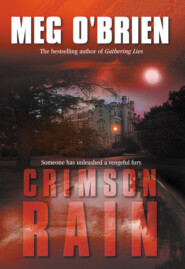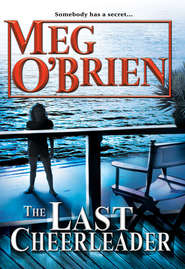По всем вопросам обращайтесь на: info@litportal.ru
(©) 2003-2025.
✖
Gathering Lies
Автор
Год написания книги
2018
Настройки чтения
Размер шрифта
Высота строк
Поля
Kim nodded and sighed. “I was offered a role like that—an innocent woman, behind bars. I turned it down because my agent didn’t want me to play a prisoner.” She rolled her eyes. “Like people don’t know the difference between real life and acting these days. Laura West, who did take the part—Do you know her?”
“I know of her, of course,” I said. “Julia Roberts’s latest competition, right? Or so it’s said. Personally, I don’t think she can hold a candle to Roberts.”
“I agree. Even so, she won an Oscar for the part of that inmate. I was left to look at it as the road not taken.”
“Frost,” I said. “‘Two roads diverged in a wood, and I—’”
“‘I took the one less traveled by,’” Kim finished for me, smiling. “High school. And don’t look so surprised. I’ve got a memory like an elephant.”
“I guess that comes in handy when you have to study a script.”
She nodded. “It put me in demand when I was first starting out and working in low-budget flicks. Public defenders, though—they don’t make much money, do they?”
“No. But I didn’t go into it for that.”
“Yeah, I know what you mean. I had a role in a film once as the president of a perfume company. Sylvie, her name was. She quit when she was forty to become a missionary.” Kim laughed, a loud, free sound that surprised me, coming from her, and under these circumstances. “A really bad movie. Did you see it? ‘Heavenly Scent’?”
I smiled at the title. “‘Heavenly Scent’? I’m sorry, no. I haven’t found much time over the years for movies. I usually go over briefs at night and on weekends.”
“Me, too. When I’m not filming, I mean, I stay home, crash and watch TV. Of course, I usually watch movies on TV. I guess we tend to relax with the same kind of work we do.”
“How true.”
“So, this charge you’ve got against you. Is there some way you can prove your innocence? I mean, as a lawyer, you must know how to do that, right?”
I hesitated. The quake had loosened my tongue, yet I didn’t feel entirely comfortable telling Kim how I planned to prove my innocence.
“Hopefully, I’ll remember how to be a lawyer when we get out of this,” I settled for. “Why don’t we keep walking? It’s beginning to look like a long day.”
She wiggled into her damp shoes, and as we walked, a mist moved in over the island. I was reminded of the tsunami warning we’d heard over the radio, the possibility of a wave several stories high striking the shore here and engulfing us all. The one from Alaska in 1964 had reached a height of 250 feet—the approximate height of a twenty-five-story building—and had landed as far south as Crescent City, California, destroying large portions of that town. Would a tsunami, if it originated from a Seattle epicenter, move this way, as the newscaster on the radio had suggested? Or would it travel south?
I couldn’t remember, from the earthquake preparedness sessions. We could only hope we would find a portable radio at the Ford house. Maybe even a cell phone. Though how much good that would do, if its batteries were dead, I didn’t know. For that matter, would there even be service? Were nearby towers intact, or had they gone down, too?
I couldn’t think about it. The worry alone was sapping my strength.
“To answer your question,” I continued, as we dodged incoming ripples on the shore, “I was helping out a working woman—a prostitute. She’d been raped by cops, and they killed her to keep her from testifying. Then they came after me. Two murders would have been too much, I suppose, so they set me up with a phony drug charge to discredit me. They also hoped to scare me into shutting up about what they’d done. Well, with the victim dead, that’s the way it might have gone. The story was in all the papers, as well as on the evening news, that Sarah Lansing—who’d defended criminals so ‘brilliantly’ over the years—was now one of them herself.”
I paused to scan the line of trees, saw nothing resembling a roofline, and continued. “I already had a record as a public defender for getting the worst kinds of criminals off. That was my job, to provide a defense for anyone—guilty or not—however uncomfortable it might sometimes be. Of course, the cops hated me for it.”
“They were afraid of you,” Kim said firmly.
For a brief moment I felt a start, as if she somehow already knew what had happened.
But then she explained, “If this were a movie, and you were to go after them—which it sounds like you were about to do—you’d be a powerful foe. They’d have to silence you. Right?”
I paused and bent to pick up a long piece of drift-wood, which I used as a staff to lean on for a moment. This talk, as well as the walk, was taking more out of me than I’d imagined it would. My knees were shaky.
“So,” Kim continued, “what you would need, Sarah, is some sort of evidence the cops couldn’t get to. Something to hold over their heads.”
I searched her face. “What gave you that idea?”
She grinned. “I saw it in a movie. I think Brian Dennehy was the good cop, and maybe James Woods was the bad one—but I could be confusing this with another film entirely.”
Her tone became serious. “All I can say, Sarah, is that you probably want to look out for yourself. These cops don’t sound like they’re going to be satisfied with your just being on trial. Too many things might come out, don’t you think? Things that could incriminate them? Sarah, putting myself in their place, I think I’d be trying to shut you up before that time comes—and I’d do it in a way that fit the drug possession charge. Have you take an overdose, or something. In fact, I’d guess their setting you up on that charge was only a first step in a larger plan.”
I stared at her. Moments passed. Finally, she laughed, awkwardly. “Sorry. My imagination runs wild sometimes.”
“That’s a bit of an understatement,” I said.
My eyes met Kim’s, and she didn’t look away, or even blink. “You’re not going to let them get away with this—are you, Sarah?”
“I…no,” I said. “No, I’m not.”
“You have a plan?”
I realized, now, that I’d said far too much. I had allowed myself to get caught up in that syndrome of bonding with someone I’d been going through a disaster with. But who knew what Kim Stratton’s motives were?
“Sarah?”
“Hmm? Sorry.”
“I was asking, have you been able to get the evidence you need to prove you were set up?”
I made a wide arc with my walking stick and threw it far out over the water, watching as the swift tide carried it away. I imagined my troubles being carried off with it, disappearing round the bend—like putting all your woes into a big brown bag by your bed at night, so you could go to sleep without worrying about them.
“You know what?” I said. “I’m so tired of thinking about all this. And I’m almost sure I can see the Ford house chimney up there, through those trees.”
“You’re right,” Kim said, looking that way. The moment of tension passed. “Thank God!” she said. “I’m getting tired of tramping around this damned island. Besides, if this were a movie, there would at least be a happy ending. I’m not so sure we’re going to get one of those.”
“I’m afraid you could be right,” I said, as Luke’s house appeared before us. Things did not look good.
5
The Ford house—or Ransford, as it had been named after Luke’s grandfather’s first name, Randell, and his last, Ford—had once been even more beautiful than Thornberry. In the past twelve or so hours, however, it had taken a bad blow. One side of it looked as if a giant had come along and crunched it with his foot. The other side seemed oddly intact, like one of those inexplicable survivors standing next to a dismembered airliner, feeling guilty to still be alive.
The once broad, white portico that had fronted the house was now only a pile of lumber. The front door had fallen completely off its hinges. Tall windows beside it had shattered and now lay in glittering heaps. Kim and I made our way up a path of cobblestones that had scattered in many directions. As we reached the broken glass, I forged a path to the door, kicking shards aside with my hiking boots. Kim, in her canvas shoes, brought up the rear.
Inside, plaster had crumbled, and chairs, sofas and small tables had been strewn in every direction. The overall effect was that of a junkyard—or, I thought, Homestead, Florida, after Hurricane Andrew. A jumbled pile of wreckage.
“What a mess,” Kim said.
“It sure is,” I agreed, sighing. I had spent many happy hours here as a teenager, pretending to read if Luke wasn’t around, listening to my dad and his talk law.
Luke’s father was a judge in Seattle, and the last I’d heard, he had retired. I wondered how he’d feel if he could see this devastation. Charles Randell Ford had taken great pride in his home, as had Luke’s mother, Priscilla. They were high on the social ladder, and entertained here throughout the summers, bringing in guests on private ferries that pulled up to a dock strung with tiny colored lights and Japanese lanterns. The music from the live bands they brought in could be heard all the way to Thornberry, and there were many nights when I would sneak out through my bedroom window at Thornberry and make my way through the woods to Ransford. There I would sit out of sight beneath a tree and watch people dancing on a platform erected on the lawn. I’d read The Great Gatsby one of those summers, and the Fords became my Gatsby—a standard for elegant living. Now and then I’d even get a glimpse of Luke—though he would more often than not be dancing with some girl I didn’t know, which also, more often than not, sent me home in a bad mood.
I never knew, till that last summer when we came together, if Luke would have danced with me at his parents’ parties. The one time I was invited by his parents, my own had refused to let me go. I was too young, they told me.
“But Luke’s not too young, and he’s the same age as me,” I would argue.









